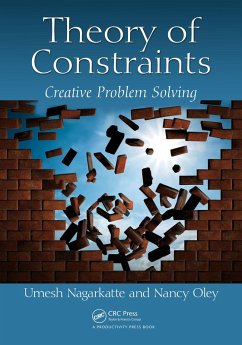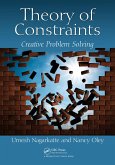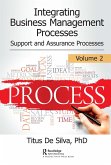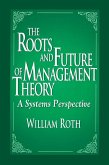34,95 €
34,95 €
inkl. MwSt.
Sofort per Download lieferbar

17 °P sammeln
34,95 €
Als Download kaufen

34,95 €
inkl. MwSt.
Sofort per Download lieferbar

17 °P sammeln
Jetzt verschenken
Alle Infos zum eBook verschenken
34,95 €
inkl. MwSt.
Sofort per Download lieferbar
Alle Infos zum eBook verschenken

17 °P sammeln
- Format: ePub
- Merkliste
- Auf die Merkliste
- Bewerten Bewerten
- Teilen
- Produkt teilen
- Produkterinnerung
- Produkterinnerung

Bitte loggen Sie sich zunächst in Ihr Kundenkonto ein oder registrieren Sie sich bei
bücher.de, um das eBook-Abo tolino select nutzen zu können.
Hier können Sie sich einloggen
Hier können Sie sich einloggen
Sie sind bereits eingeloggt. Klicken Sie auf 2. tolino select Abo, um fortzufahren.

Bitte loggen Sie sich zunächst in Ihr Kundenkonto ein oder registrieren Sie sich bei bücher.de, um das eBook-Abo tolino select nutzen zu können.
This book was written to assist professionals and students to become proactive in their own education, improve thinking, resolve personal and interpersonal conflicts, improve pedagogy, management departmental affairs, and guide administrative decisions.
- Geräte: eReader
- mit Kopierschutz
- eBook Hilfe
- Größe: 5.23MB
Andere Kunden interessierten sich auch für
![Theory of Constraints (eBook, PDF) Theory of Constraints (eBook, PDF)]() Umesh P. NagarkatteTheory of Constraints (eBook, PDF)34,95 €
Umesh P. NagarkatteTheory of Constraints (eBook, PDF)34,95 €![Real Dream Teams (eBook, ePUB) Real Dream Teams (eBook, ePUB)]() Robert FisherReal Dream Teams (eBook, ePUB)74,95 €
Robert FisherReal Dream Teams (eBook, ePUB)74,95 €![Million Dollar Influence (eBook, ePUB) Million Dollar Influence (eBook, ePUB)]() Alan WeissMillion Dollar Influence (eBook, ePUB)26,95 €
Alan WeissMillion Dollar Influence (eBook, ePUB)26,95 €![Integrating Business Management Processes (eBook, ePUB) Integrating Business Management Processes (eBook, ePUB)]() Titus De SilvaIntegrating Business Management Processes (eBook, ePUB)60,95 €
Titus De SilvaIntegrating Business Management Processes (eBook, ePUB)60,95 €![Structured for Success (eBook, ePUB) Structured for Success (eBook, ePUB)]() J. Chris WhiteStructured for Success (eBook, ePUB)34,95 €
J. Chris WhiteStructured for Success (eBook, ePUB)34,95 €![Integrating Business Management Processes (eBook, ePUB) Integrating Business Management Processes (eBook, ePUB)]() Titus De SilvaIntegrating Business Management Processes (eBook, ePUB)60,95 €
Titus De SilvaIntegrating Business Management Processes (eBook, ePUB)60,95 €![The Roots and Future of Management Theory (eBook, ePUB) The Roots and Future of Management Theory (eBook, ePUB)]() William RothThe Roots and Future of Management Theory (eBook, ePUB)139,95 €
William RothThe Roots and Future of Management Theory (eBook, ePUB)139,95 €-
-
-
This book was written to assist professionals and students to become proactive in their own education, improve thinking, resolve personal and interpersonal conflicts, improve pedagogy, management departmental affairs, and guide administrative decisions.
Hinweis: Dieser Artikel kann nur an eine deutsche Lieferadresse ausgeliefert werden.
Dieser Download kann aus rechtlichen Gründen nur mit Rechnungsadresse in A, B, BG, CY, CZ, D, DK, EW, E, FIN, F, GR, HR, H, IRL, I, LT, L, LR, M, NL, PL, P, R, S, SLO, SK ausgeliefert werden.
Hinweis: Dieser Artikel kann nur an eine deutsche Lieferadresse ausgeliefert werden.
Produktdetails
- Produktdetails
- Verlag: Taylor & Francis eBooks
- Seitenzahl: 314
- Erscheinungstermin: 27. November 2017
- Englisch
- ISBN-13: 9781351677455
- Artikelnr.: 50402873
- Verlag: Taylor & Francis eBooks
- Seitenzahl: 314
- Erscheinungstermin: 27. November 2017
- Englisch
- ISBN-13: 9781351677455
- Artikelnr.: 50402873
- Herstellerkennzeichnung Die Herstellerinformationen sind derzeit nicht verfügbar.
Dr. Umesh Nagarkatte received his Ph.D. in algebraic number theory from the Graduate Center of the City University of New York (CUNY) in 1976. He underwent dedicated Jonah training at the Avraham Goldratt Institute with two of his colleagues in 2002. The team became pioneers in higher education to implement the theory of constraints and thinking process tools by using the college as the system. He has been certified as a Facilitator by TOC for Education, Inc. (TOCfE).
Dr. Nagarkatte, with the assistance of coauthor Nancy Oley as editor and evaluator, received federal grants in 2001-2004, 2004-2007, 2005-2007, 2010-2013, 2012-2015, and 2013-2016 for using the theory of constraints (TOC)/thinking processes (TP) to address the problem of attrition. He has used TOC/TP with his fellow Jonah, Dr. Joshua Berenbom, to develop three textbooks - Prealgebra, Elementary Algebra, and Intermediate Algebra - adapting the Singapore model method to the college level. Oley and Nagarkatte started working on the current book on TOC/TP in 2010 to empower students, counselors, educators, and other stakeholders to work as a team to ensure student success.
Dr. Nagarkatte taught at the Borough of Manhattan Community College, CUNY, from 1971 to 1976. He recently retired as Professor of Mathematics from Medgar Evers College, CUNY, where he has taught since 1978. His research interests are in algebraic geometry; number theory; applications of mathematics to chemistry and environmental science, philosophy, and meditation; and applying the TOC/TP to all areas of interest.
Dr. Nancy Oley received her Ph.D. in experimental psychology from Columbia University and did postdoctoral work in neurophysiology at Florida State University and in neuropsychology at Teachers College, Columbia University. She studied TOC at the Avraham Goldratt Institute and Washington State University, and is currently certified as a Jonah by the Theory of Constraints International Certification Organization (TOCICO) and as a Facilitator by TOCfE.
Dr. Oley has pioneered the incorporation of TOC processes and concepts within the content of her psychology courses, helped to develop TOC curricula for incoming college students, created a short TOC course/workshop for remedial math students, and collaborated with Dr. Umesh Nagarkatte for over 10 years on numerous federally funded TOC-related grants and projects aimed at optimizing the college system to improve curriculum and instruction in mathematics and to reduce attrition.
Dr. Oley has held positions of leadership in university governance as well as in state and national scientific organizations, and has published in the areas of pain/analgesia, memory, nervous system regeneration, olfaction, and the teaching of psychology. She has engaged undergraduate and graduate students at a variety of institutions, among them Augustana College (Illinois), the University of Hartford, Trinity College (Connecticut), Columbia University, and Medgar Evers College, CUNY, from which she recently retired as professor emerita of psychology.
Dr. Nagarkatte, with the assistance of coauthor Nancy Oley as editor and evaluator, received federal grants in 2001-2004, 2004-2007, 2005-2007, 2010-2013, 2012-2015, and 2013-2016 for using the theory of constraints (TOC)/thinking processes (TP) to address the problem of attrition. He has used TOC/TP with his fellow Jonah, Dr. Joshua Berenbom, to develop three textbooks - Prealgebra, Elementary Algebra, and Intermediate Algebra - adapting the Singapore model method to the college level. Oley and Nagarkatte started working on the current book on TOC/TP in 2010 to empower students, counselors, educators, and other stakeholders to work as a team to ensure student success.
Dr. Nagarkatte taught at the Borough of Manhattan Community College, CUNY, from 1971 to 1976. He recently retired as Professor of Mathematics from Medgar Evers College, CUNY, where he has taught since 1978. His research interests are in algebraic geometry; number theory; applications of mathematics to chemistry and environmental science, philosophy, and meditation; and applying the TOC/TP to all areas of interest.
Dr. Nancy Oley received her Ph.D. in experimental psychology from Columbia University and did postdoctoral work in neurophysiology at Florida State University and in neuropsychology at Teachers College, Columbia University. She studied TOC at the Avraham Goldratt Institute and Washington State University, and is currently certified as a Jonah by the Theory of Constraints International Certification Organization (TOCICO) and as a Facilitator by TOCfE.
Dr. Oley has pioneered the incorporation of TOC processes and concepts within the content of her psychology courses, helped to develop TOC curricula for incoming college students, created a short TOC course/workshop for remedial math students, and collaborated with Dr. Umesh Nagarkatte for over 10 years on numerous federally funded TOC-related grants and projects aimed at optimizing the college system to improve curriculum and instruction in mathematics and to reduce attrition.
Dr. Oley has held positions of leadership in university governance as well as in state and national scientific organizations, and has published in the areas of pain/analgesia, memory, nervous system regeneration, olfaction, and the teaching of psychology. She has engaged undergraduate and graduate students at a variety of institutions, among them Augustana College (Illinois), the University of Hartford, Trinity College (Connecticut), Columbia University, and Medgar Evers College, CUNY, from which she recently retired as professor emerita of psychology.
Foreword
Preface
Acknowledgments
Authors
Chapter 1: Introduction
Chapter 2: What to Change? Part 1: Branch, Current Reality Tree and Future
Reality Tree
Chapter 3: What to Change? Part 2: Evaporating Clouds
Chapter 4: What to Change to?
Chapter 5: How to Cause the Change? Prerequisite Tree, Project Plan, and
Transition Tree
Chapter 6: Five Focusing Steps in the Process of Ongoing Improvement
(POOGI): Institutional Problem Solving
Chapter 7: Epilogue: How Did We Do?
Appendix: TOC for Education
Index
Preface
Acknowledgments
Authors
Chapter 1: Introduction
Chapter 2: What to Change? Part 1: Branch, Current Reality Tree and Future
Reality Tree
Chapter 3: What to Change? Part 2: Evaporating Clouds
Chapter 4: What to Change to?
Chapter 5: How to Cause the Change? Prerequisite Tree, Project Plan, and
Transition Tree
Chapter 6: Five Focusing Steps in the Process of Ongoing Improvement
(POOGI): Institutional Problem Solving
Chapter 7: Epilogue: How Did We Do?
Appendix: TOC for Education
Index
Foreword
Preface
Acknowledgments
Authors
Chapter 1: Introduction
Chapter 2: What to Change? Part 1: Branch, Current Reality Tree and Future
Reality Tree
Chapter 3: What to Change? Part 2: Evaporating Clouds
Chapter 4: What to Change to?
Chapter 5: How to Cause the Change? Prerequisite Tree, Project Plan, and
Transition Tree
Chapter 6: Five Focusing Steps in the Process of Ongoing Improvement
(POOGI): Institutional Problem Solving
Chapter 7: Epilogue: How Did We Do?
Appendix: TOC for Education
Index
Preface
Acknowledgments
Authors
Chapter 1: Introduction
Chapter 2: What to Change? Part 1: Branch, Current Reality Tree and Future
Reality Tree
Chapter 3: What to Change? Part 2: Evaporating Clouds
Chapter 4: What to Change to?
Chapter 5: How to Cause the Change? Prerequisite Tree, Project Plan, and
Transition Tree
Chapter 6: Five Focusing Steps in the Process of Ongoing Improvement
(POOGI): Institutional Problem Solving
Chapter 7: Epilogue: How Did We Do?
Appendix: TOC for Education
Index







